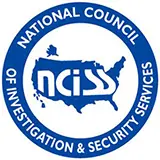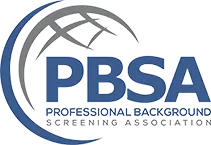
In the intricate tapestry of corporate operations, the responsible use and management of company assets are critical for sustained success. However, despite some of the more stringent policies and ethical passageways, instances of misuse of company assets are still a super lingering issue, posing significant risks to the financial health, reputation, and the overall well-being of organizations. This article sheds light on the various forms of misuse of company assets, exploring real-world examples to illustrate the potential consequences and the importance of robust asset management.
Embezzlement and Financial Mismanagement:
One of the most glaring examples of misuse of company assets is embezzlement and financial mismanagement. This occurs when employees, often entrusted with financial responsibilities, divert funds for personal gain. For instance, an employee responsible for managing petty cash might systematically siphon off funds for personal use, leading to financial discrepancies and potential financial strain for the company.
Unauthorized Personal Use of Company Vehicles:
Company vehicles are valuable assets, typically designated for business-related purposes. However, instances of unauthorized personal use can occur, ranging from employees using company cars for non-work-related activities to more egregious cases involving extended personal trips on the company’s dime. This misuse not only incurs unnecessary expenses for the organization but also poses liability risks in the event of accidents or incidents during personal use.
Inappropriate Use of Company Technology:
The misuse of company technology is a prevalent issue in the digital age. Employees may use in some instances, company computers and other devices for personal activities, along the lines of browsing social media, shopping online, or engaging in talks that aren’t really relevant to work related issues. Apart from the loss of productivity, this can also expose the company to cybersecurity risks if employees inadvertently download malicious software or compromise sensitive data.
Abuse of Expense Accounts:
Expense accounts are meant to facilitate legitimate business-related expenditures. However, some employees may exploit this system by inflating expenses or submitting false claims. This can range from exaggerating meal expenses during business trips to fabricating receipts for non-existent purchases, leading to financial losses for the company.
Theft of Physical Assets:
Theft of physical assets, such as office supplies, equipment, or inventory, is a tangible and direct form of misuse. Employees may pilfer office supplies for personal use, leading to increased procurement costs for the company. In more severe cases, employees might steal valuable equipment or inventory, causing financial losses and operational disruptions.
Misuse of Company Time:
While not a physical asset, time is a valuable resource for any organization. Employees misusing company time can have a detrimental impact on productivity. Examples include excessive personal phone calls, extended lunch breaks, or engaging in non-work-related activities during working hours. Prolonged and widespread misuse of time can result in decreased overall efficiency and output.
Unapproved Use of Company Information:
Misuse of confidential company information is a serious breach of trust. Employees may share the more sensitive information types with competitors, use proprietary data for their own personal gain, or engage in kinds of insider trading. Such actions not only jeopardize the company’s competitive advantage but also expose it to legal ramifications and damage to its reputation.
Real Estate and Facilities Misuse:
For companies with physical facilities, misuse can extend to the improper use of office spaces or facilities. This may include unauthorized subletting of office space, using company facilities for personal events without approval, or even the illicit use of company-owned properties for personal gain.
The Consequences of Misuse of Company Assets

Financial Losses:
Misuse of company assets often leads to direct financial losses. Whether through embezzlement, theft, or unauthorized expenses, the impact on a company’s bottom line can be substantial. These financial types of issued losses can really stunt and impede growth, reduce profitability, and affect the overall financial measures of the organization.
Damage to Reputation:
The misuse of company assets can in turn hurt a company’s reputation, especially if the misconduct becomes truer to life public knowledge. Stakeholders, including customers, clients, and investors, may lose trust in the organization, affecting its brand image and market standing. Rebuilding an issue based damaged reputation can be a challenging and time-consuming process that may in some cases may not even see an end.
Legal Consequences:
Many forms of asset misuse involve legal implications. Embezzlement, fraud, and theft are violations of internal policies but may also have huge legal implications along the lines of jail time. Companies may face legal action, fines, and other penalties, and individuals involved may be subject to legal consequences, including fines or imprisonment.
Operational Disruptions:
The theft or misuse of physical assets, such as equipment or inventory, can disrupt normal business operations. The loss of critical assets may lead to delays in production, fulfillment issues, or interruptions in service delivery. These operational disruptions can have cascading effects on customer satisfaction and overall business performance.
Decreased Employee Morale:
The discovery of asset misuse can have a demoralizing effect on the workforce. Employees who witness or learn about such misconduct may feel disheartened, leading to decreased morale and productivity. It can also be the source of issues in the sense of trust and camaraderie within the organization and the future issues.
Preventing and Addressing Misuse of Company Assets

Clear Policies and Communication:
Establishing clear policies regarding the use of company assets is the first line of defense against misuse. Communicate these policies to employees through training programs, employee handbooks, and regular updates. Clearly outline consequences for violations to deter potential misconduct.
Regular Audits and Monitoring:
Conducting regular audits of financial records, physical assets, and technology usage can help identify irregularities and potential misuse. Implementing monitoring systems for company-issued devices and network activities can provide real-time insights into employee behavior.
Whistleblower Programs:
Encouraging employees to report suspected misuse through whistleblower programs can be an effective way to uncover misconduct. Providing a more confidential and secured safe channel for employees to report concerns without fear of retaliation from somebody committing a bad act promotes a culture of transparency and accountability.
Technology Safeguards:
Implementing technology safeguards, such as access controls, encryption, and monitoring software, can help prevent unauthorized access and use of company information. This is especially crucial in protecting sensitive data and mitigating cybersecurity risks.
Employee Training and Education:
Comprehensive training programs on ethical conduct, company policies, and the consequences of asset misuse can raise awareness among employees. Educated and informed employees are more likely to adhere to ethical standards and report potential misconduct.
Consequences for Violations:
Consistently enforcing consequences for asset misuse is essential. This not only serves as a big measure of deterrence but also reinforces the importance of ethical conduct within the company. Fair and consistent application of consequences helps maintain a culture of accountability.

Misuse of company assets poses significant risks to organizations, affecting their financial stability, reputation, and overall success. By understanding the various forms of asset misuse and learning from real-world examples, businesses can take proactive measures to prevent misconduct and protect their interests. Strong and more detail provoking policies, regular monitoring, and a commitment to ethical conduct are essential components of a more through and comprehensive strategy to mitigate the risks associated with the misuse of company assets. As organizations strive for sustainable growth and success, safeguarding their assets becomes an integral part of responsible corporate governance.
ASG Investigations is here to help prevent and address misuse with tailored solutions. Our experts combine legal and investigative skills, conducting audits, monitoring activities, and implementing safeguards. Clear policies, regular training, and consequences for violations are vital in fostering a culture of accountability. Contact ASG Investigations today to fortify your organization against the risks of asset misuse.
Additionally, ASG Investigations excels in various corporate investigations. Whether it’s due diligence, background checks, or uncovering fraud, our team provides comprehensive services to meet your corporate investigative needs. Trust us to deliver accurate and timely results, safeguarding the integrity of your business operations
